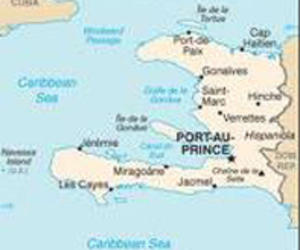Brazil funds Cuban aid program in Haiti with $80 million
- Submitted by: manso
- International
- 02 / 26 / 2011

The Brazilian Congress approved $80 million in funding for a healthcare program in Haiti that is jointly coordinated by Haiti, Cuba and Brazil.
According to Brazilian officials, Cuban experts are “assisting” the tri-party program. However, given their experience and long-time presence in Haiti, Cuban health officials make many organizing and purchasing decisions, according to observers.
The $80 million from Brasil will be used this year and in 2012 for construction of four hospitals and purchase of equipment, said Carlos Felipe Almeida D’Oliveira, project coordinator of the Brazilian health ministry, according to Cuban daily Granma.
The hospitals at Carrefour, Bon Repos, Tabarre, and Croix des Bouquets all are located near the earthquake-devastated capital Port-au-Prince. Purchases this year include 30 ambulances, vaccines and other supplies to support a national immunization program, and the training of 2,000 health community activists.
The tripartite program is part of a four-year, $690 million program to rebuild the healthcare infrastructure of Haiti. Last year, Cuban Foreign Minister Bruno Rodríguez announced during a UN donors conference that Havana is coordinating the plan to rebuild Haiti’s healthcare system. The bulk of the funding was initially expected to come from Venezuela and the ALBA trade and integration agreement.
During the donors conference, Rodríguez described the program as a bargain, at $170 million a year during the first four years, and seemed to invite the United States to participate. “The medical program that we are proposing will benefit 75 percent of the population most in need, at a minimum cost,” Rodríguez said. “We invite all governments — without exception — to contribute to this noble effort.”
In September last year, the United States and France agreed to fund the reconstruction of the Haiti State University Hospital in Port-au-Prince with $25 million each. The project is part of the larger “Program for the Reconstruction and Strengthening of the National Health System in Haiti,” which is designed by the Haitian government.
It also includes rehabbing of 32 clinics and hospitals, construction of 101 primary care centers that will attend up to 2.8 million patients a year, and construction of 30 rehabilitation wards for up to 520,000 earthquake survivors with multiple injuries, as well as three electro-medicine centers, one orthopedic prosthesis lab, and implementation of a comprehensive hygiene and epidemiology program.
Independently from the multilateral program, Cuba already set up 30 secondary care community hospitals throughout Haiti for 2.15 million patients and 54,000 surgeries.
Source: /www.cubastandard.com/2011/02/25/
Comments